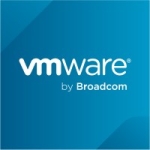What is our primary use case?
We are completely migrating to Snowflake, and we are in transition. It is primarily to combine all our data repositories into a single place. We have SAP BW and SAP HANA, and some of our business units have their own databases. We chose Snowflake to consolidate all of our data into a single place and then build enterprise data. We are then going to provide the data for our businesses in shared databases, on which they would do reporting. They will also have the ability to bring in their own data, which is currently not possible. They will also be able to do advanced analytics, machine learning, and AI in Snowflake, which is not fully possible on our current platforms. It will be used for all the operational reporting, such as sales, supply chain, appraising, and merchandising. We just started to do reporting related to sales and supply chain inventory.
We have its latest version. It is currently deployed on Amazon AWS, but we are moving to Google.
How has it helped my organization?
There are so many features that Snowflake offers to address the challenges that people have been facing in the traditional data warehouses for a long time. It allows us to have a single repository for all the data. Currently, we have data repositories all over the place, and we want to bring everyone onto one platform so that it can be utilized across the organization. Currently, we need database administrators and SAP administrators to manage multiple databases and platforms. With Snowflake, we don't need any admin, and there is zero maintenance. All we need is a platform architect who can just manage the Snowflake platform to create databases and security roles, and then you can share the data. By integrating everything into a single Snowflake platform, we have lowered the total cost of ownership quite a bit.
What is most valuable?
The ability to share the data and the ability to scale up and down easily are the most valuable features. The concept of data sharing and data plumbing made it very easy to provide and share data. The ability to refresh your Dev or QA just by doing a clone is also valuable. It has the dynamic scale up and scale down feature.
Development and deployment are much easier as compared to other platforms where you have to go through a lot of stuff. With a tool like DBT, you can do modeling and transformation within a single tool and deploy to Snowflake. It provides continuous deployment and continuous integration abilities.
There is a separation of storage and compute, so you only get charged for your usage. You only pay for what you use. When we share the data downstream with business partners, we can specifically create compute for them, and we can charge back the business.
What needs improvement?
They need to incorporate some basic OLAP capabilities in the backend or at the database level. Currently, it is purely a database. They call it purely a data warehouse for the cloud. Currently, just like any database, we have to calculate all the KPIs in the front-end tools. The same KPIs again need to be calculated in Snowflake. It would be very helpful if they can include some OLAP features. This will bring efficiency because we will be able to create the KPIs within Snowflake itself and then publish them to multiple front-end tools. We won't have to recreate the same in each project.
There should be the ability to automate raised queries, which is currently not possible. There should also be something for Exception Aggregation and things like that.
For how long have I used the solution?
I have been using this solution for two years.
What do I think about the stability of the solution?
It is all cloud. It is really stable. We haven't seen any problems.
What do I think about the scalability of the solution?
We can scale up or down based on our needs. We don't have tons and tons of data, but based on the quality feedback from our vendors, it can handle large volumes and has the competency. With the dynamic scale-up feature, we are confident that it is going to meet all our requirements.
Currently, our number of users is very limited because we have just started the migration. We don't have many users on the platform. All of our focus is on Snowflake because we're moving to Snowflake, and its usage will increase in the future.
How are customer service and technical support?
I do not directly interact with the support, but I believe our platform architect reached out, and he got a response.
Which solution did I use previously and why did I switch?
We had SAP BW and SAP HANA as our main data platforms. We are slowly decommissioning SAP BW and SAP HANA and completely migrating to Snowflake. We wanted to have a single repository for all the data. The cost was also a factor.
How was the initial setup?
It is straightforward. To expose the data in the cloud, we had to go through our info security and legal, so that's the part that took time. After that is done, the process for setting up the platform, getting signed up with the initial free credits, and signing up the licensing for the credits was straightforward.
What about the implementation team?
We are working with a system integrator or vendor for this project. Our strategy is to work with an experienced vendor for the first project, and after that, we would be able to drive things forward.
Our experience with them is good. They're building the architecture of Snowflake. They have experience, and we have our own thoughts. We are working together and making sure that the architecture is for the long-term and not just for one project. Whenever we see that their focus is limited to the project, we are asking them questions to make sure that they are making the right decision.
In terms of maintenance, it doesn't require any maintenance, but you do require architects. We have three architects. One architect is responsible for the platform and takes care of creating security rules, grants, and users. We also have an integration architect who is responsible for data acquisition, ETL, and stuff like that. We have a data architect who is responsible for the overall data architecture in terms of what layers we need to establish and how do we model the data and publish that for consumption.
What's my experience with pricing, setup cost, and licensing?
There is a separation of storage and compute, so you only pay for what you use.
What other advice do I have?
The key part is skill set because Snowflake is all SQL-driven data warehousing. Internally, we have some SAP BW development resources, and they need to learn and move on to understanding SQL-based coding and custom data warehousing concepts.
I would rate Snowflake a nine out of ten.
Which deployment model are you using for this solution?
Public Cloud
If public cloud, private cloud, or hybrid cloud, which cloud provider do you use?
Amazon Web Services (AWS)
Disclosure: My company does not have a business relationship with this vendor other than being a customer.

















